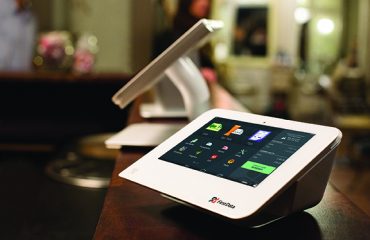If your business accepts a lot of corporate or government cards, you may benefit from implementing Merchant Level III Credit Card Processing. This enhanced data solution can result in lower processing fees for transactions that qualify for Level III interchange rates. In this article, we’ll dive into the requirements for Level III processing, the best gateways for Level III data, and how to ensure you’re keeping your processing fees as low as possible.
Level III Requirements
Level III data refers to providing specific line item details at the time of a purchasing card or government card transaction beyond what is required for consumer card transactions. Level III transactions must include all of the fields required for level I and level II, as well as additional details that only apply to level III.
Level I fields include merchant name, transaction amount, and the date. Level II adds requirements including merchant zip code and tax ID. Level III required fields include:
- Product or service description
- Product or service quantity
- Product or service unit of measure
- Product or service extended amount
- Discount amount
- Shipping amount
- Duty amount
- Tax amount
- Tax rate
While this looks like a lot of required line items, some solutions automate the process of sending Level III data, meaning you won’t need to manually enter the details when you process a transaction.
Cards Eligible for Level III
Many corporate and purchasing cards are Level III eligible, but some business credit cards are not. Business cards differ from corporate cards in that the cardholder is usually liable for purchases rather than the company. It’s more common for small businesses to have business credit cards and larger companies to have corporate credit cards. There’s no way to look at a card to determine if it’s eligible for Level III data, but it’s essentially irrelevant, as you’re not able to refuse specific cards anyway. If you take a lot of corporate or government cards, it’s best practice to submit all of the required data for Level III transactions. If certain cards are only Level II eligible, providing data from Level III won’t negatively affect your costs. If the cards are eligible for Level III, you’ll benefit from the lower costs by providing all data.
Level III-Capable Gateways
Gateways play a large role in Level III data processing. If your gateway isn’t capable of passing Level III data, it’s irrelevant whether you provide all of the required Level III details – the transactions will still not qualify for Level III because the data never “arrived” with the transaction.
Countertop credit card machines and common POS systems don’t support Level III. If you swipe a commercial or government card, you’ll be charged commercial card-present interchange rates, which are not the lowest cost. For achieving Level III, you’ll need a gateway and virtual terminal solution.
Proprietary gateways offered by companies like Stripe and PayPal do not support Level II or Level III. If you accept a lot of commercial or government cards, those will not be a good fit. Lastly, even gateways that support Level III may not pass Level III data on all processor platforms. It’s important to confirm with your processor that you’ll be set up for correctly passing Level III data, and then verify correct setup once you start processing.
Best Gateways for Level III Processing
There are several gateways that can auto-fill Level III data for you, helping reduce human error and ensuring that you’re actually providing the line item detail necessary to qualify for Level III rates. However, businesses that have multiple staff members entering payments should avoid gateways and virtual terminals without auto-fill. Gateways without auto-fill take additional training and open you up to more errors when multiple people are entering enhanced data manually
When it comes to Merchant Level III Credit Card Processing, finding the right payment processor is critical. Not only do you need a processor that is knowledgeable about the initial setup of your Level III solution, but you also need one that is well-versed in ongoing compliance requirements.
Compliance is a critical part of Level III processing because providing the required data can be a complex and constantly changing process. You need a payment processor who is familiar with the specific requirements for your business, and who can help you stay up to date on any changes that may affect your Level III compliance.
One of the key compliance issues with Level III processing is ensuring that you’re providing accurate line item details. Mistakes in product descriptions, quantities, or extended amounts can result in non-compliant transactions, which means you won’t qualify for Level III interchange rates. This is why having a processor who is knowledgeable about your specific industry and business is so important. They can help you stay on top of the latest requirements and ensure that your transactions are always compliant.
Another compliance issue to consider is how you’re storing and transmitting Level III data. Level III data is considered sensitive information and must be stored and transmitted securely. Your payment processor should have systems in place to protect this data and ensure that it is never compromised.
In addition to compliance issues, your payment processor should also be knowledgeable about any other factors that may affect your Level III processing costs. This includes understanding the different interchange rates for Level III transactions, as well as any other fees or charges that may apply.
Overall, finding a payment processor who is knowledgeable about Level III processing is essential for any business that accepts a lot of corporate or government cards. They can help you set up your solution correctly, ensure ongoing compliance, and help you keep your processing costs as low as possible.



